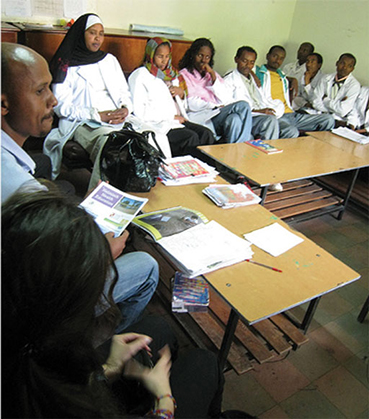7.6.1 What are facilitation skills?
Facilitation skills are skills used to direct and guide important processes with groups of people. These processes can involve meetings, discussions and planning sessions or training events. Somebody needs to guide these processes to make sure the objectives are met. This person is called the facilitator.
The facilitator plays a key role in the success of a community meeting. He or she ensures that ideas raised by participants are coherent with the main agenda of the meeting and works towards finding an agreeable consensus solution to the problem at hand. A good facilitator also ensures that all present are participating adequately in the process and their voices are heard (Figure 7.8).

Facilitating is different from chairing a meeting. Neither is it teaching, giving orders or prescribing solutions. It means encouraging of the flow of ideas and systematically drawing the discussion to a conclusion that addresses the agenda.
A facilitator has three main roles:
- To guide a group of people to move through a process together. A facilitator does not give opinions, but encourages others in the group to voice theirs.
- To focus on achieving solutions, but also on how people participate in the process.
- To remain open and neutral throughout the process and not to take sides.
7.6 Role of frontline workers in facilitation
